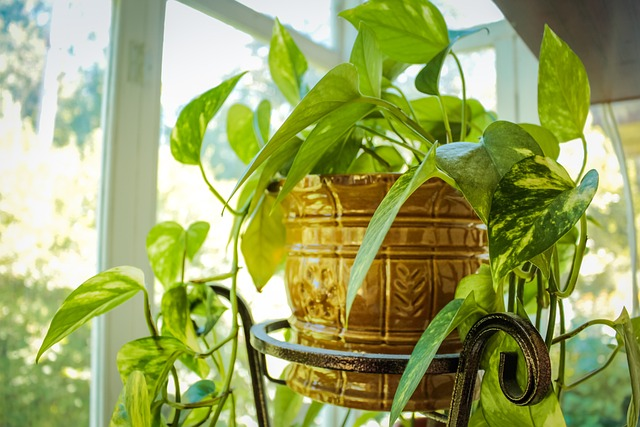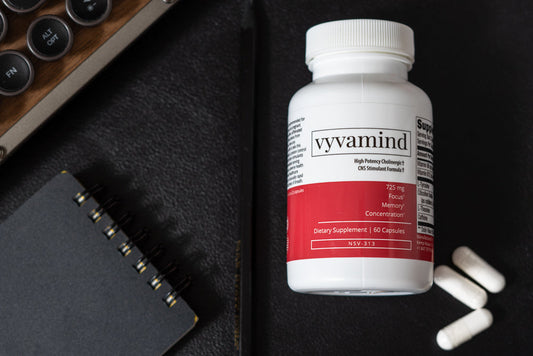Tips on How to Increase Concentration Immediately

- Supplements - The Fastest Way To Increase Concentration and Focus Straight Away
- Quick Techniques for Immediate Concentration Boost
- Creating an Ideal Workspace
- Mindfulness Practices for Better Focus
- Nutrition and Hydration for Cognitive Support
- Time Management Strategies for Enhanced Focus
- Addressing Mental Health Challenges
- Summary
Focus is fragile. One moment you're deep in flow, the next you're checking your phone for the third time in five minutes. If you're finding it harder than ever to concentrate, you're facing a challenge that's reshaping how we all work and think.
The good news? You can strengthen your focus starting right now. Not through elaborate systems or weeks of practice, but through practical techniques that work the first time you use them. This guide cuts through the usual advice about concentration to deliver strategies you can implement while reading this article.
I've spent years testing these methods with everyone from CEOs to creative professionals, and I've stripped away everything but what actually works. No meditation apps to download, no expensive productivity courses to buy - just straightforward approaches that fit into your current workflow.
What follows is a toolbox of techniques that target the main enemies of concentration: digital distractions, mental fatigue, and environmental interruptions. Each solution is designed to work independently, so you can pick what fits your situation and start using it immediately.
Let's skip the productivity jargon and get straight to what matters: helping you focus better, starting with your very next task.
Key Takeaways
- Your path to better focus combines natural supplements, quick techniques, and thoughtful environmental design. When properly integrated, these elements create a complete system for staying on task.
- If you're looking for rapid improvement, consider starting with a well-researched supplement like Vyvamind, which has shown impressive results for cognitive enhancement with minimal side effects. This can provide the immediate boost you need while building longer-term habits.
- Creating the right physical environment proves equally crucial. Simple adjustments to your workspace - optimizing lighting, maintaining a comfortable temperature, and establishing a clutter-free zone - can dramatically impact your ability to concentrate. Think of your workspace as the foundation that either supports or undermines your focus efforts.
- Don't overlook the role of mental health in maintaining concentration. Stress and anxiety can derail even the best concentration techniques. Whether through mindfulness practices or professional support, addressing these underlying challenges often unlocks dramatic improvements in focus and cognitive performance.
- These strategies work best when implemented together, creating a comprehensive approach to enhanced concentration. Start with what resonates most strongly with you, knowing you can layer in additional techniques as you progress.
Supplements - The Fastest Way to Increase Concenctration and Focus Straight Away

Sometimes you need more than just willpower to tackle that looming deadline or complex project. When immediate mental clarity is crucial, targeted supplements can provide the cognitive boost you're looking for. Leading the pack is Vyvamind, which has gained attention for its ability to enhance focus and concentration rapidly, offering the mental edge needed to power through demanding tasks.
What makes this approach particularly effective is how quickly you can notice the difference. Picture being able to sit down at your desk and dive straight into deep work, your mind clear and focused instead of constantly reaching for your phone or chasing down distracting thoughts. This immediate improvement in mental clarity doesn't just feel good – it translates directly into measurable gains in productivity and task completion.
Beyond Vyvamind, the broader category of nootropics for focus offers additional options for cognitive enhancement. These compounds work to support various aspects of mental function, from processing speed to sustained attention. The key is finding the right supplement that aligns with your specific needs and goals for concentration improvement. Whether you're preparing for an important presentation or need sustained focus for detailed analytical work, the right supplementation strategy can help bridge the gap between where your concentration is and where you need it to be.
Remember that while these supplements can provide a significant boost, they work best when integrated into a broader approach to cognitive health. Start with one option and pay attention to how it affects your focus and productivity levels throughout the day.
How Vyvamind works to improve focus and concentration immediately
Ever notice how some days your brain feels like it's running on dial-up when you need broadband speed? That's where Vyvamind steps in, targeting the brain's natural focusing mechanisms and cranking them up a notch. It's not about forcing artificial alertness - think of it more like fine-tuning your brain's existing hardware.
Let's cut to the chase. Vyvamind combines six key ingredients that each play a specific role in sharpening your mental game:
- Caffeine - but not the jittery kind you get from your fourth cup of coffee
- L-theanine - pairs with caffeine like rhythm pairs with blues
- Citicoline - keeps your brain firing on all cylinders
- L-Tyrosine - helps you stay sharp when the pressure's on
- B Vitamins - the behind-the-scenes crew keeping everything running smoothly
What makes this mix special isn't just what's in it - it's how these ingredients work together. While most focus supplements feel like they're hitting you with a mental sledgehammer, Vyvamind acts more like a precision tool, helping you maintain peak performance even when distractions are trying their best to derail your day.
Here's what you'll actually notice when it kicks in:
- That foggy feeling lifts, replaced by crystal-clear focus
- Your mind stops wandering during important tasks
- Information sticks better, and you can pull it up when needed
- Your brain stays in high gear for several solid hours
Real talk: there will always be days when focusing feels like herding cats. But instead of fighting an uphill battle with your attention span, Vyvamind gives you a legitimate shortcut to that locked-in mental state you're after. Next time you need to bring your A-game, you've got a reliable way to make it happen.
Quick Techniques for Immediate Concentration Boost

Lost your focus? Let's get it back - no supplements required. These proven techniques work in minutes, giving you practical ways to reset your mental sharpness right when you need it most. I've tested these methods extensively both personally and with clients, and they consistently deliver results, especially when you're fighting against a noisy environment or that post-lunch mental fog.
Deep Breathing: Your 60-Second Focus Reset
Think your breathing is already fine? Here's the thing - most of us barely use half our lung capacity. Strategic breathing literally changes your brain's chemistry in under a minute. When your concentration starts slipping, try these proven techniques:
- Pursed lip breathing - like blowing out a candle in slow motion
- Diaphragmatic breathing - let your belly, not your chest, do the work
- Breath focus technique - count your breaths to anchor your wandering mind
- Lion's breath - the power move of breathing (yes, you might get looks)
- Alternate nostril breathing - your secret weapon for mental clarity
Power Naps: The Art of Strategic Rest
Forget what you heard about naps being lazy. A properly timed power nap is like hitting the refresh button on your brain. Here's what a good power nap can do:
- Snap you out of that afternoon mental fog
- Sharpen your attention span
- Kick your productivity back into high gear
- Take the edge off stress
- Turn your mood around when you're feeling stuck
The trick? Keep it short - 10-30 minutes max. Find a quiet spot, set a non-negotiable alarm, and give yourself permission to disconnect briefly. You'll wake up with notably clearer thinking.
Physical Movement: Your Body's Focus Switch
Sometimes the best way to get your brain moving is to get your body moving first. Physical activity isn't just about fitness - it's an immediate concentration booster. When your focus starts to fade, try:
- A brisk walk around the block
- A quick running sprint
- Five minutes of desk yoga
- Basic stretching sequences
Mix these into your day naturally - between meetings, after tough mental tasks, or whenever you feel your attention starting to drift. It's not about working out - it's about using movement strategically to maintain your mental edge.
Remember, concentration isn't about forcing yourself to focus harder - it's about knowing how to reset when your focus inevitably dips. Keep these techniques in your back pocket and use them before your concentration completely checks out.
Creating an Ideal Workspace

Your environment shapes your focus more than you might realize. Just as an athlete needs the right conditions to perform their best, your brain needs the right workspace to maintain peak concentration. Let's transform your space into a focus-friendly zone.
The Science of Space: Lighting and Temperature
Natural light isn't just good for your mood - it's a powerful ally for your concentration. Position your workspace to capture sunlight when possible, but keep artificial lighting strategic and adjustable. Think layers of light rather than one harsh overhead source. Task lighting should illuminate your immediate work area without creating screen glare, while ambient lighting keeps eye strain at bay during longer sessions.
Temperature plays an equally crucial role in maintaining focus. That slight chill that makes you reach for a sweater? It's actually better for concentration than a warm, cozy room. The sweet spot typically falls between 68-72°F (20-22°C). When your body is maintaining a comfortable temperature without effort, your brain can dedicate more energy to the task at hand.
Declutter for Clear Thinking
A cluttered desk really does reflect a cluttered mind - and science backs this up. Start by clearing everything from your workspace, then reintroduce only what serves your current tasks. Create intuitive homes for frequently used items within arm's reach, and relocate everything else. The goal isn't Instagram-worthy minimalism; it's about crafting a space where your attention flows naturally to your work.
The Two-Minute Rule
Adopt this simple principle: if something takes less than two minutes to tidy, do it immediately. Wipe down your desk at day's end. Return items to their designated spots after use. File that document now rather than adding it to a pile. These micro-habits prevent clutter from accumulating and maintain your workspace as a sanctuary for focused work.
Remember, your ideal workspace isn't static - it evolves with your needs. Pay attention to when and where you feel most focused, then adjust your environment accordingly. The goal is to create a space where concentration comes naturally, not one where you're constantly fighting against your environment to maintain focus.
Mindfulness Practices for Better Focus
Your mind is like a muscle - it gets stronger with the right kind of training. Let's explore how mindfulness can transform your focus from scattered to laser-sharp, using techniques that fit into your real-world schedule.
Meditation: Training Your Mental Spotlight
Think meditation is about emptying your mind? Think again. It's about training your attention, like a mental workout that builds your focus over time. Start small - even five minutes daily can rewire how your brain handles distractions. Try focusing on your breath, and each time your mind wanders (it will), gently guide it back. That's not failure - that's literally the workout.
Single-Tasking: The New Productivity Superpower
Forget multitasking - it's time to embrace the power of doing one thing well. Your brain isn't wired to juggle multiple complex tasks, despite what we've been led to believe. Instead, give yourself permission to focus entirely on one task. Close those extra browser tabs. Put your phone on Do Not Disturb. You'll be amazed at how much faster and better you work when you're not splitting your attention.
Nutrition and Hydration: Fuel for Your Focus
Your brain is an energy-hungry organ, and what you feed it matters. Load up on foods that support sustained concentration: fatty fish packed with omega-3s, antioxidant-rich berries, and dark chocolate (yes, really). Think of these foods as premium fuel for your mental engine. Avocados, eggs, and nuts provide the building blocks your brain needs for peak performance.
Some top brain-boosting foods include:
* Blueberries
* Fatty fish like salmon
* Turmeric
* Broccoli
* Pumpkin seeds
* Dark chocolate
* Nuts and seeds
* Oranges
* Eggs
* Green tea
* Avocados
Hydration plays an equally crucial role in keeping your mental gears turning smoothly. Even mild dehydration can make your concentration nosedive. Keep water within arm's reach and sip regularly throughout the day. Skip the sugary drinks and excessive caffeine - they'll give you a quick boost followed by an energy crash that leaves you more unfocused than before.
The key is consistency. Make these practices part of your daily routine rather than emergency measures when your focus fails. Your brain will thank you with sharper concentration, better memory, and more productive work sessions.
Remember, these aren't just nice-to-have additions to your day - they're fundamental tools for maintaining peak mental performance in a world that's constantly trying to scatter your attention.

Time Management Strategies for Enhanced Focus
The biggest enemy of focus isn't distraction - it's poor time management. Let's explore how strategic timing can transform your workday from a scattered marathon into focused, productive sprints.
The Pomodoro Technique: Work With Your Brain, Not Against It
Ever notice how your best work happens in bursts? That's not coincidence - it's how your brain naturally operates. The Pomodoro Technique taps into this natural rhythm, using 25-minute focused sprints followed by short breaks. Think of it as interval training for your concentration.
Here's the real magic: knowing you only need to focus for 25 minutes makes starting feel less daunting. That project you've been putting off? Just commit to one Pomodoro. Once you're in the flow, you'll often want to keep going. After four focused sessions, reward yourself with a longer 15-minute break. Your brain needs this downtime to consolidate information and recharge for the next round.
Prioritization: The Art of Strategic Focus
Not all tasks deserve equal attention. The secret to maintaining razor-sharp focus is knowing exactly what matters most right now. Start each day by identifying your "power tasks" - the ones that move the needle on your most important goals. These get your peak energy hours.
Think of your attention as a finite currency. Spend it first on high-impact activities when your mental energy is fresh. Those quick-win tasks that feel productive but don't create real progress? Save them for when your focus naturally dips later in the day.
The key is being ruthlessly honest about what truly matters. That urgent but unimportant email? It can wait until you've tackled your priority work. By aligning your peak focus hours with your most crucial tasks, you'll accomplish more in less time - and feel less scattered in the process.
Remember, effective time management isn't about squeezing more into your day. It's about protecting your focus so you can do your best work on what matters most.
Technology and Concentration
Let's be honest - the same technology that's designed to connect us is often our biggest focus killer. But instead of viewing your devices as the enemy, let's transform them into allies in your quest for better concentration.
App Blockers: Your Digital Bouncer
Think of app blockers as your personal willpower amplifier. When that muscle-memory urge to check social media kicks in, they create a pause button - just enough friction to keep you on track. The best part? You set the rules. Maybe you need Instagram blocked during work hours but available during lunch. Or perhaps you want to lock yourself out of email while working on deep-focus projects.
Popular options like Freedom or Forest don't just block distractions - they help you understand your habits. After a few weeks, you'll spot patterns in when you're most likely to reach for distractions. This awareness alone can transform how you interact with technology.
Smart Device Settings: Engineering Your Environment
Your phone and computer come with powerful focus tools built right in - most people just never activate them. Start by auditing your notifications. Ask yourself: "Does this app deserve the right to interrupt my thoughts?" If not, mute it. The world won't end if you don't immediately see every like, comment, or news alert.
Take it further with Do Not Disturb mode. Set up custom schedules that align with your peak focus hours. Allow breakthrough calls from key contacts while silencing everything else. Create different modes for different activities - maybe "Deep Work" blocks everything except calendar reminders, while "Creative Time" allows music apps but nothing else.
Remember, technology should serve your goals, not sabotage them. By thoughtfully configuring your digital environment, you can create a workspace where focus flows naturally and distractions fade into the background.

Addressing Mental Health Challenges
Let's talk about the elephant in the room: sometimes focus issues aren't just about distractions or poor habits - they're tied to deeper mental health challenges. Whether you're dealing with ADHD, anxiety, depression, or just feeling overwhelmed, your ability to concentrate is intimately connected to your mental wellbeing.
Stress Reduction: Your First Line of Defense
Stress isn't just an uncomfortable feeling - it's a focus killer that hijacks your brain's ability to concentrate. But here's the good news: you can fight back. Think of stress reduction as regular maintenance for your mind. Find what works for you, whether it's a morning run that clears your head, a midday meditation that resets your mental state, or an evening yoga session that helps you decompress.
The key is consistency. Small, daily stress-management practices often work better than occasional big interventions. Maybe it's five minutes of deep breathing between meetings, or a quick walk when you feel tension building. These aren't indulgences - they're essential tools for maintaining your mental clarity and focus.
Seeking Professional Support: When Self-Help Isn't Enough
Sometimes the best act of self-care is reaching out for professional help. If you've tried various focus techniques but still feel like you're swimming upstream, it might be time to talk with someone who specializes in mental health. Think of it like this: you wouldn't hesitate to see a physical therapist for a persistent injury - your mental health deserves the same level of professional care.
A good therapist or counselor can help you untangle whether your concentration challenges stem from anxiety, depression, ADHD, or other factors you might not have considered. They can provide personalized strategies that work with your specific situation, not just generic advice.
Remember, seeking help isn't a sign of weakness - it's often the smartest and strongest move you can make. Your ability to focus isn't just about productivity - it's about being present and engaged in your life. Don't let pride or hesitation keep you from getting the support you need to perform at your best.
Summary
In conclusion, improving your concentration immediately is achievable through a combination of targeted approaches. By incorporating Vyvamind supplements alongside proven focusing techniques, you can create a comprehensive system for enhanced mental clarity.
The quick concentration-boosting methods we've discussed - from strategic breathing to power naps - provide immediate tools for regaining focus when it slips. Creating an optimal workspace with proper lighting, temperature control, and organization sets the stage for sustained attention.
Mindfulness practices build your focusing muscles over time, while proper nutrition and hydration provide the essential foundation for cognitive performance. Time management strategies like the Pomodoro Technique help structure your work for maximum effectiveness, and thoughtful technology management prevents digital distractions from derailing your concentration.
Most importantly, addressing any underlying mental health challenges ensures you're building your focus practices on solid ground. Don't let distractions and interruptions hold you back - take control of your concentration today and unlock your full potential.
Frequently Asked Questions
How can I increase my concentration fast?
Quick concentration boosts come from a combination of immediate actions: clear your workspace of distractions, turn off digital notifications, and commit to focusing on just one task. Additionally, try a brief meditation or deep breathing exercise, take a short walk, or do some quick stretches. The key is breaking the pattern of scattered attention and creating a reset moment for your brain.
Why am I lacking concentration?
Concentration issues rarely have a single cause. Common culprits include poor sleep quality, high stress levels, information overload, or irregular eating patterns. Mental health challenges like anxiety, depression, or ADHD can also significantly impact focus. Sometimes it's as simple as trying to maintain attention for too long without breaks, or as complex as underlying health conditions that need professional attention.
What are the benefits of incorporating brain-boosting foods into my diet?
Think of brain-boosting foods as premium fuel for your mental engine. They provide essential nutrients that support neurotransmitter function, help maintain stable energy levels, and protect against cognitive decline. Regular consumption can enhance memory, sharpen focus, and improve your brain's ability to handle complex tasks.
How can I practice single-tasking to improve my concentration?
Start by choosing one important task and creating a distraction-free environment for it. Close unnecessary browser tabs, put your phone in another room, and set a specific timeframe for focused work. When your mind wanders (it will), gently guide it back to the task at hand. Think of single-tasking as a muscle that strengthens with regular exercise.
How can I use app blockers to minimize distractions and improve concentration?
App blockers are your digital willpower assistant. Start by identifying your most distracting apps or websites, then set up specific time blocks when they're off-limits. Begin with short periods - maybe just an hour or two - and gradually extend the duration as you build the habit of focused work. The goal isn't to permanently block these apps but to create intentional spaces for deep concentration.





